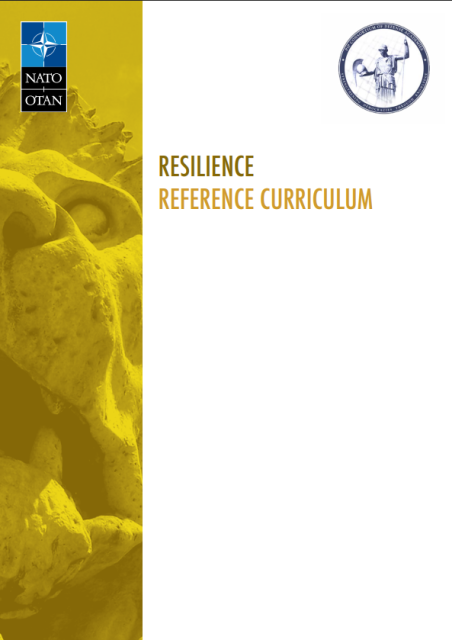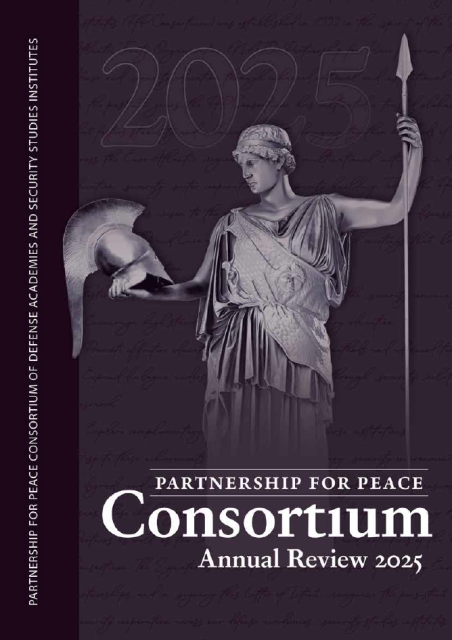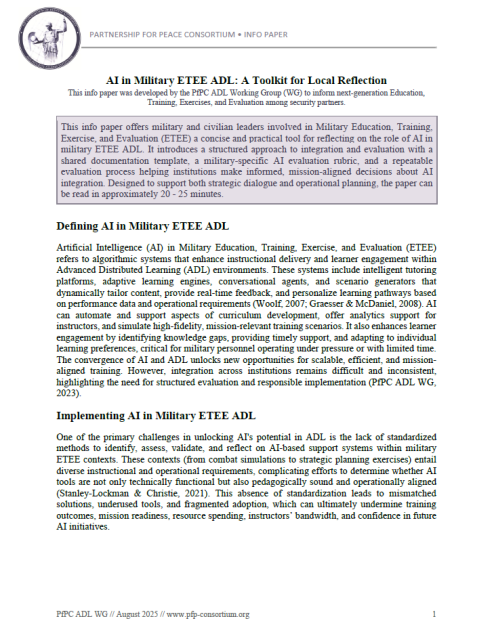Meeting at the NATO Summit in Washington, DC in April 1999, heads of state endorse the concept of the Consortium as part of an enhanced and more operational PfP.
PfPC Secretariat established at the George C. Marshall Center in Garmisch-Partenkirchen, Germany; till present, it serves as focal point for the activities of the Consortium providing day-to-day coordination, management and event support.
Consortium governance structure re-organized: a Senior Advisory Council created to give broad policy guidance, with the PfPC Executive Director as its secretary, and the Director of the Marshall Center or his designee as its chairman.
The Consortium mission statement updated, to include the following two pillars: promote Defense Institution Building through defense education enhancement and sustain Regional Stability through multinational education and research.
The Consortium celebrates its tenth anniversary 18-19 June 2008 at its 10th Annual Conference, co-sponsored by NATO at its headquarters in Brussels, Belgium. Secretary General Jaap de Hoop Scheffer honored the Consortium by providing opening remarks.
Multi-faceted expansion of information sharing, training and defense institution building programs becomes Consortium's primary focus: DEEP activity expands to include eight counrties.
ADL incorporation into DEEP, as well as into curricula of Defense Institution Building (DIB); DEEP expanded to 10 countries, adding Mauritania, Mongolia, Serbia, Ukraine and Uzbekistan.
Countering Violent Extremism tabletop exercises begin a whole-of-society approach; Poland and Sweden added to the Consortium Governing Board, thereby enhancing PfPC international profile with nations of growing strategic importance to Euro-Atlantic security.
Cyber Security and Counterinsurgency reference curricula utilized by DEEP programs in North Macedonia, Serbia, Tunisia, and Ukraine; some 90 defence education/institution building activities conducted with a throughput of more than 40 participating nations.
20th Anniversary of the Consortium! Successful management of nine working and study groups, 13 DEEPs, multinationalized pool of subject matter experts for all programs by enlisting experts from Bulgaria, Canada, Germany, Kasakhstan, Latvia, Poland, Romania and Ukraine.





